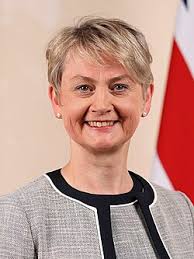Yvette Cooper: Key Contributions and Political Influence

Introduction
Yvette Cooper, the current Member of Parliament (MP) for Normanton, Pontefract and Castleford, has emerged as a key figure in UK politics. Her extensive experience in government and commitment to social issues have made her a prominent voice in contemporary political discourse.
Career Overview
Born on March 20, 1969, Yvette Cooper was educated at Newnham College, Cambridge, where she studied economics and social politics. She entered parliament in 1997 and has since held several prestigious cabinet positions, including Secretary of State for Work and Pensions and Home Secretary. Throughout her career, Cooper has been known for her advocacy on issues such as gender equality, welfare reform, and social justice.
Recent Developments
In recent months, particularly amidst the ongoing cost-of-living crisis in the UK, Cooper has become increasingly vocal about the challenges faced by working families. In a series of speeches and interviews, she has urged the government to introduce measures to alleviate financial pressures on households, highlighting the need for a more robust welfare system and increased support for vulnerable communities.
Additionally, Cooper has taken a strong stance on immigration reform, advocating for humane policies that balance security with compassion. Her leadership within the Labour Party has seen her appointed as the shadow home secretary, positioning her at the forefront of critical discussions surrounding policing and public safety.
Public Response and Importance
Cooper’s political positions and actions have garnered both support and criticism from various quarters. She has been praised for her articulate and thorough approach to complex issues, particularly during parliamentary debates and interviews. Her work resonates with many constituents who feel that their needs are often overlooked in political discussions.
Conclusion
As the UK navigates a period of significant challenges and change, Yvette Cooper’s role in shaping policy and advocating for social justice remains pivotal. Her commitment to addressing pressing issues continues to inspire many citizens and foster engagement in political dialogue. Looking ahead, Cooper’s influence is likely to grow, particularly as Labour prepares for future elections, where her vision for a fairer society will be critical in rallying support.









